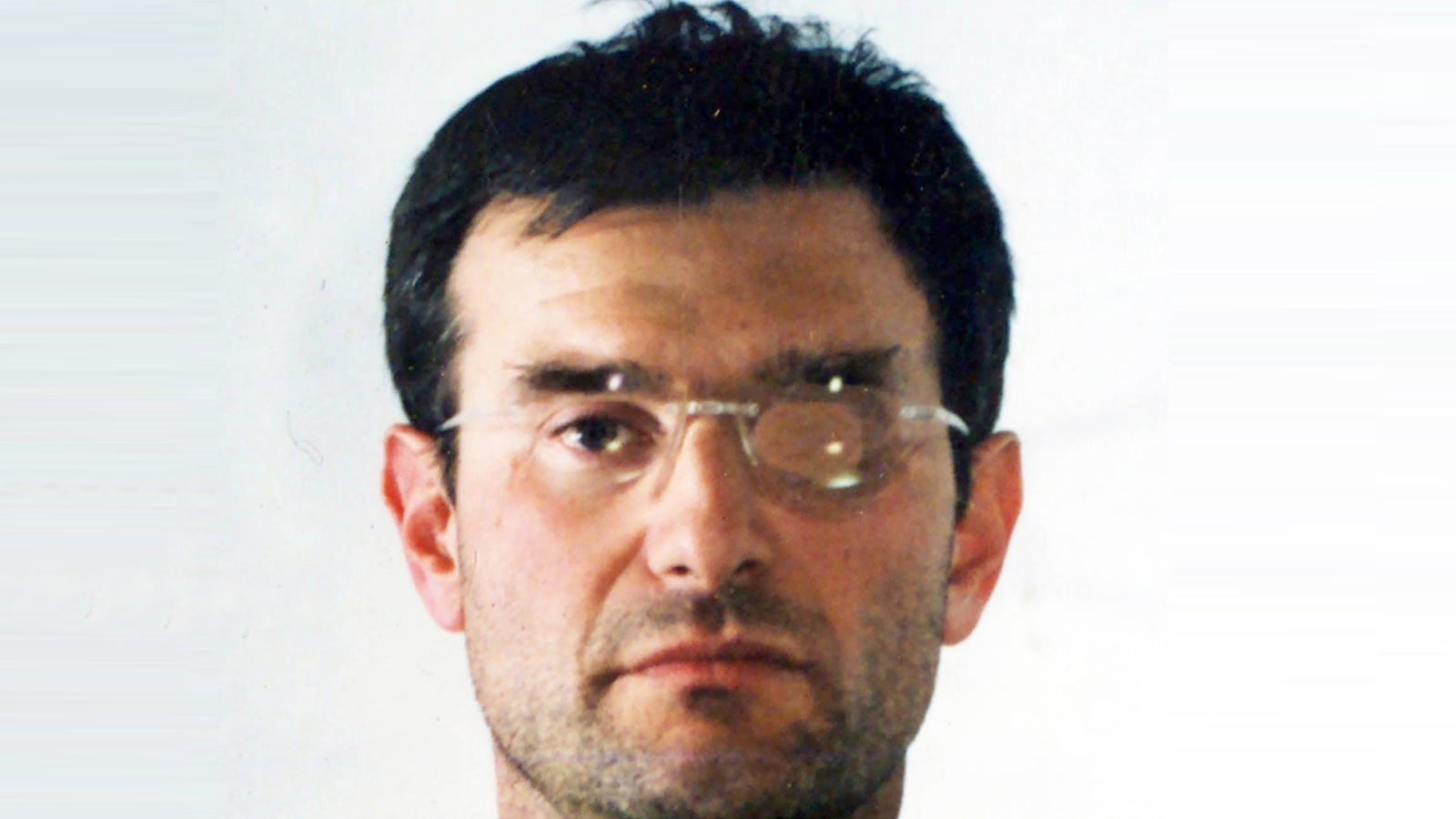ROME — They could have come out of central casting: A one-eyed gangster and 45 of his closest henchmen and, for that matter, henchwomen are facing what’s has been billed as Rome’s most important organized crime trial. The only problem is that the primary suspects pose too big of a security threat to actually be allowed to attend in person the trial that begins on Thursday.
After the official opening in Rome’s Justice Palace, with the lawyers for all the unusual suspects present, the trial will be moved to a basement bunker in the Rebbibia High Security Prison on the outskirts of the city, where there is less risk of a jailbreak or retaliatory attacks.
At the center of this drama is the powerful gang known as “Mafia Capitale” and its leader, Massimo Carminati. He has been nicknamed “The Black Soul,” “The Immortal,” and, notably, “The Pirate” after he took a bullet to the head in a shootout with police in the early 1980s and wound up losing an eye.
Carminati remains in isolation in a prison in the north of the country and won’t be moved to Rome until it is his turn to testify, but will be allowed to watch the proceedings against him and his cohorts by video link.
Carminati, now 57, earned his criminal stripes in the 1970s and ’80s when he ran with the infamous Magliana Gang that wreaked havoc during Italy’s violent Years of Lead. He served most of a 10-year prison sentence and was twice accused of murder, but escaped conviction on what amounted to technicalities. He was also accused of helping lead the far-right Armed Revolutionary Nuclei that was implicated in the 1980 bombing of Bologna train station, which killed 85 people, but he was never convicted in that case for lack of proof.
Carminat’s right-hand man is Salvatore Buzzi, a smiling, broad-shouldered villain who was famously caught on a telephone intercept telling his associate Pierina Chiaravalle that ripping off refugees was a better racket than narcotics. “Do you have any idea how much I make on these immigrants?,” he was caught saying. “Drug trafficking is less profitable.”
The rest of the suspects are the worst of the bad, plucked from a bigger list of 101 people who make up what Rome’s prefect for the Interior Ministry Franco Gabrielli called a “corruption index” including Rome’s former mayor Gianni Alemano, whose turn on the stand may yet come, according to lawyers for some of the suspects.
Many of the others have endeavored to enter plea bargains or have become crucial turncoats prepared to give evidence against the core 46, who span all political stripes. Suspect Luca Gramazio, for example, is the former head of Silvio Berlusconi’s center-right Forza Italia party in the Roman city council, while Mirko Coratti is the former head of Prime Minister Matteo Renzi’s center-left Democratic Party on the city council.
The so-called Mafia Capitale scandal broke last November when Rome’s mayor, Ignazio Marino, blew the whistle on corrupt contracts involving the city’s essential services (or, it would seem at times, lack thereof).
Marino has since been pushed out of office, essentially tripping up over a silly expense scandal that might have otherwise blown over had it not been for the many enemies he made who were eager to see him fall. He rescinded his resignation last week, but when 26 members of his city council resigned en masse, he left for good. In the meantime, the head of security for Milan, Francesco Paolo Tronca, has been parachuted in to run the city until elections can be held.
When Marino came into office, he grew immediately suspicious of Carminati’s right-hand man, Buzzi, known as the “king” of the cooperatives that run Rome’s recycling and rubbish collection contracts, as well as the contracts to manage hosting centers for migrants in the capital. The “Mafia Capitale” is considered the fifth major organized crime ring in Italy after the Cosa Nostra in Sicily, the ‘Ndrangheta in Calabria, the Camorra in Naples, and the Sacra Corona Unita of Puglia.
While only the Sicilian Cosa Nostra is a true Mafia organization by definition, those fighting organized crime in Italy refer to the new Mafia Capitale as a mafia as well, and the same units that fight organized crime elsewhere in the country are busy in Rome.
For the last year, the city has suffered immensely at the hands of the bad guys—and often the good guys—as it tries to get back on its feet. The sweeping up of the corruption and questionable city contracts left a vacuum in terms of public services, which has led to what often feels like a second fall of Rome for residents.
To complicate the issue more, in less than a month, Pope Francis will open the Holy Doors of St. Peter’s Basilica to kick off a Holy Jubilee that will bring many millions more to the city than usual over the course of the next year, despite the fact that the city has never been so compromised by corruption.
So bad is the city’s scummy underbelly, the head of Italy’s National Anti-Corruption Authority, Raffaele Cantone, declared that Milan has become “the country’s moral capital” while Rome, he said, does not have the “necessary antibodies to stop organized crime.”
After the opening day of the trial on Thursday, four hearings a week will be heard in the prison bunker, pending, of course, the usual holdups like a lawyers’ strike scheduled for Nov. 9-12 and the Christmas holidays that often extend from Dec. 8 to Jan. 6 in Rome. The case is expected to wrap up next summer, although it is likely that Italy’s three-tiered justice system and lengthy appellate process will keep it in the courts for decades.






